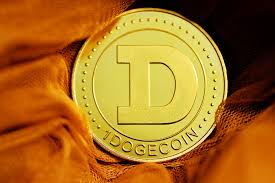Pirate Chain, also known as ARRR, is a privacy-focused cryptocurrency that aims to provide secure and anonymous transactions for its users. It was launched in 2018 and has gained significant popularity since then. In this article, we will delve into the history of the Pirate Chain, exploring its origins, development, and the features that make it stand out in the world of cryptocurrencies.

Origins of Pirate Chain
Pirate Chain may be linked back to the Komodo Platform, a blockchain project centered on offering users anonymity and protection. The Komodo team recognized the demand for a genuinely private coin capable of providing anonymous operations. This led to the birth of Pirate Chain, which was initially a fork of the Komodo codebase.
Pirate Chain’s development
Pirate Chain production began in early 2018, with a dedicated team of developers aiming to improve the privacy features of the Komodo source. They wanted to develop a cryptocurrency that would give its users total anonymity, making it difficult to track activities or identify the persons concerned.
To achieve this, Pirate Chain implemented the zk-SNARKs technology, which stands for Zero-Knowledge Succinct Non-Interactive Argument of Knowledge. This technique enables users to demonstrate that they have particular information without giving it. This implies that transactions on the Pirate Chain may be confirmed without revealing the sender, receiver, or transaction amount.
The launch of Pirate Chain
Pirate Chain was officially launched on August 29, 2018, with its native currency, ARRR, being made available for trading on various cryptocurrency exchanges. The launch was met with significant enthusiasm from the privacy-conscious community, who saw Pirate Chain as a solution to the growing concerns regarding the lack of privacy in traditional cryptocurrencies.
Key features of Pirate Chain
Pirate Chain has numerous major elements that distinguish it and make it appealing to its users. One of its distinguishing aspects is its emphasis on privacy. By utilizing the zk-SNARKs technology, Pirate Chain ensures that transactions are completely anonymous, making it nearly impossible to trace or identify the parties involved.
Another important feature of the Pirate Chain is its decentralized nature. Unlike traditional financial systems, Pirate Chain operates on a decentralized blockchain network, meaning that no single entity or authority has control over the network. This ensures that transactions are secure and cannot be manipulated or censored.
Furthermore, a Pirate Chain, like Bitcoin, has a proof-of-work consensus method. Because miners must solve complicated mathematical riddles to validate deals and add them to the blockchain, this approach protects the network’s security and integrity.
Community and future developments
Since its launch, Pirate Chain has attracted a dedicated and passionate community. This community actively contributes to the development and promotion of Pirate Chain, ensuring its growth and sustainability. The community organizes events, creates educational resources, and supports the adoption of the Pirate Chain as a means of private and secure transactions.
Looking ahead, Pirate Chain has ambitious plans for its future development. The team’s goal is to improve the network’s scalability and usability, making it available to a larger audience. They are also looking at merging Pirate Chain with other privacy-focused initiatives to broaden its reach and capabilities.
Conclusion
Pirate Chain has emerged as a leading privacy-focused cryptocurrency, offering secure and anonymous transactions to its users. Its origins in the Komodo Platform and the implementation of zk-SNARKs technology have made Pirate Chain a unique and attractive option for those seeking privacy in their financial transactions. With a dedicated community and ambitious plans for the future, Pirate Chain is poised to make a significant impact in the world of cryptocurrencies.
You can also find these articles helpful
Is it profitable to trade Pirate Chain?
Advantages and disadvantages of the Pirate Chain
6 Popular Cryptocurrency Mining Algorithms You Should Know










